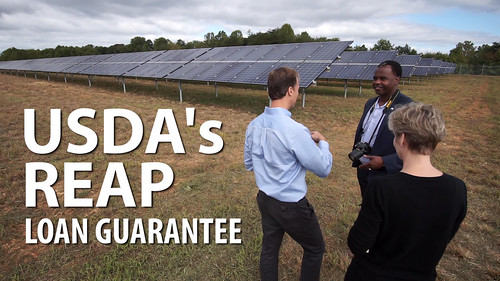
In the last fiscal year, USDA Rural Development invested over $240 million in renewable energy and energy efficiency projects across the nation. Through our Rural Energy for America Program (REAP) we have changed the face of clean energy in our rural communities by promoting energy efficiency in rural small businesses and agricultural operations and the development of renewable energy sources in and around these small communities.
The renewable energy component has expanded both small and large-scale clean energy development in a number of sectors including geothermal, solar, wind, hydropower, and biofuels. Utilizing resources already available in our rural areas whether it's sun and wind, or water and agricultural waste, USDA in partnership with local lenders has been able to provide the financial underpinnings to grow hundreds of renewable energy projects.
The logical partner to the clean and renewable energy is to be thrifty with its usage once it's been harnessed. The energy efficiency portion of the REAP program provides financial assistance to rural small businesses and ag producers to reduce input costs and improve the bottom line of their balance books by replacing aging and inefficient heating systems and lighting, poorly insulated doors and windows, even upgrading irrigation pivots to solar and gravity-fed systems.
Ultimately, this two-pronged approach is providing locally-sourced energy to fill the needs of our rural communities and making the operations of these businesses and producers stronger and more sustainable over the long haul. North Carolina is a great example of how this program and approach has worked across the nation. Our State Director in North Carolina, Randall Gore, has been a champion of the Rural Energy for America Program, and he and his staff have worked closely with lenders, community leaders, and small businesses in rural North Carolina to develop energy projects that produce clean and renewable power to keep these producers and businesses running.
We've produced a video illustrating the impact the REAP program has had in the Tar Heel State and I'm grateful to State Director Gore, his staff, and the folks in Mt. Airy region who took the time to talk about how REAP has benefitted their state – as it has across the nation.



